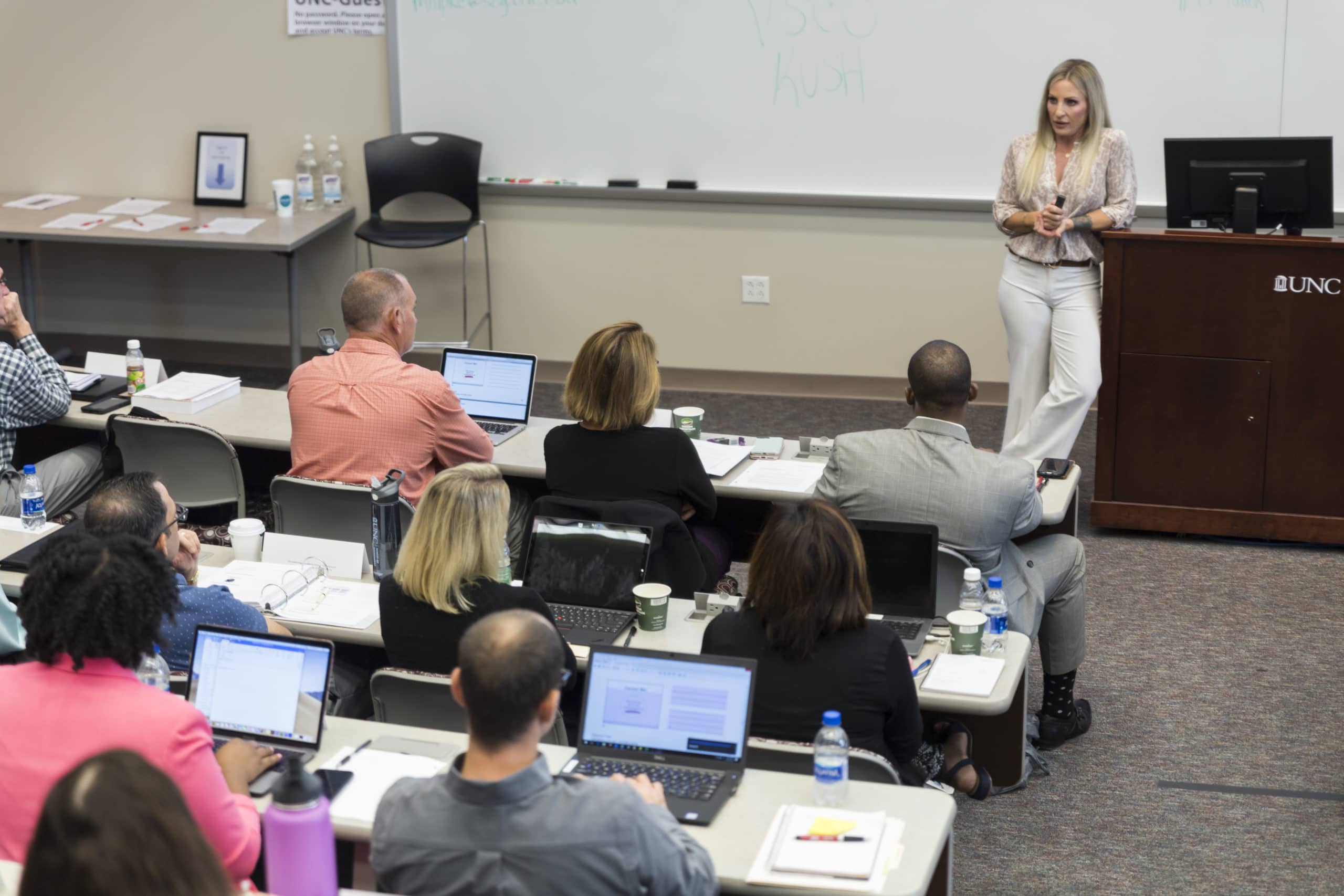
Local governments are key to creating economic development opportunities in rural, economically distressed areas. In many of our smaller communities, those working in these roles have a whole host of responsibilities and limited access to leadership training.
In December 2020, the Golden LEAF Board of Directors awarded $493,546 to the University of North Carolina at Chapel Hill to fund the Golden LEAF Local Government Training Initiative. The initiative provides financial support in the form of scholarships to assist mid- and entry-level professionals, which includes professionals up to the department director level. All scholarship recipients must be from governments within counties designated Tier 1 for calendar years 2020, 2021, or 2022.
“This is the first time that we have received support for professional development opportunities for this particular segment of the workforce,” said Dr. Peg Carlson, Director, Center for Public Leadership and Governance for the UNC-Chapel Hill, School of Government. “It is wonderful for Golden LEAF to recognize the need and to see so many people taking advantage of the initiative.”
The Golden LEAF Local Government Training Initiative offers three categories of professional development opportunities: Fundamental and Advanced Supervisory Training, Individual Scholarships for Open Enrollment Courses, and Organizational Scholarships for Customized Training.
The initiative kicked off March 1, 2021. To date, 691 scholarship recipients from 47 counties have used $146,255 in scholarships.
The initiative has 115 eligible courses professionals can attend such as Governmental Accounting and Financial Reporting, Fundamentals of Property Tax Collection, Capital Financing in Local Government, Building Coaching Skills to Tap Potential, and Basic Economic Development. These courses are offered mostly online which has helped increase participation numbers.
Part of the initiative provides more intensive training related to supervisory roles.
“The Fundamental and Advanced Supervisory Training is a week-long course that equips both new and experienced supervisors for success in public service leadership,” said Carlson. “Courses provide management and supervisory competencies needed to lead public departments and teams effectively and efficiently.”
Shelvia Ashford, Human Resources Director for the City of Clinton, was excited to take advantage of the Golden LEAF Local Government Training Initiative. She had experience in Human Resources and was hired as Director of Human Resources in October 2019. One of Ashford’s goals was to revise the City’s supervisory program. She heard about the initiative offered through UNC-Chapel Hill and wanted to participate to help grow her team’s skills.
Ashford participated in the Fundamental and Advanced Supervisory Training.
“The training I attended covered 85% of the skills our supervisors need to have, but we wanted to add a few more things,” said Ashford. “So we decided to sign up for the customized training. We want to roll it out to all of our frontline managers, crew leaders, even if they only supervise one person.”
The initiative also provides organizational scholarships for customized training. Ashford will be paired with School of Government faculty members to develop and deliver practical, customized training to target the City of Clinton’s specific needs.
“We are trying to grow within our organization,” said Ashford. “Our directors will sit in on the training so that they know what is being taught. When we do our performance evaluations, the directors will know if the supervisors are using what they learned or should have learned, which will add another layer of support.”
The goal of the Golden LEAF Local Government Training Initiative is to help grow the professional capacity in economically distressed communities.
“We want to help those individuals build skills for their current roles and advance their careers for future roles through the School of Government continuing education programs,” said Carlson. “We know that people need the support and training and continued updated information to carry out current roles. The initiative is removing the financial burden that can be a stumbling block and is allowing professionals that want to attend the programs to grow.”
The initiative will continue into 2022. For more information on the Golden LEAF Local Government Training Initiative, click here.